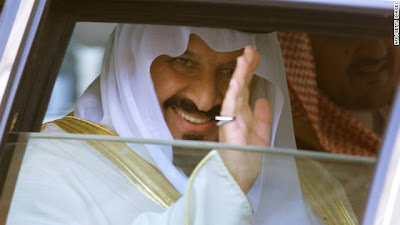At the end of the Hajj (annual pilgrimate to Mecca), Muslims throughout the world celebrate the holiday of Eid al-Adha. The first day of the Eid Al-Adha holiday is Sunday, Nov 6th and will last for three days. During this celebration the miliary and civilians are on administrative leave.
Eid solemn festival) al-Adha (feast of sacrifice) is an Islamic festival to celebrate the willingness of Abraham to follow Allah's command to sacrifice his son Ishmael as an act of obedience to Allah, before Allah intervened to provide him with a ram to sacrifice instead. During the celebration of Eid al-Adha, Muslims commemorate and remember Abraham's trials, by themselves slaughtering an animal such as a sheep, camel or goat. This action is very often misunderstood by those outside the faith. The meat is divided into three parts. The family retains one third of the share; another third is given to relatives, friends and neighbors; and the other third is given to the poor and needy. Muslims around the world observe this event.
Ablah, my co-worker who is originally from Jordan, graced us with an authentic Saudi Arabian breakfast to kick off the pre-Eid festivities. The breakfast consisted of pickeled vegetables, falafel (deep fried balls of patty made of ground chickpeas and/or fava beans), pies filled with feta cheese, hummus, fava beans and gawah coffee. Gawah coffee recipe has three cups of water, 2 tablespoons of ground decaffeinated coffee, three tablespoons of cardamom (an indian herb having capusular fruit with aromatic seeds used as a spice or condiment) and 1/4 teaspoon saffron. The ingredients are boiled and strained. I will be visiting Ablah and her family after Eid. She says to me "you come see how I live!" It will most definitely be my pleasure!
Assalaam Alaikum
GMarie
Eid solemn festival) al-Adha (feast of sacrifice) is an Islamic festival to celebrate the willingness of Abraham to follow Allah's command to sacrifice his son Ishmael as an act of obedience to Allah, before Allah intervened to provide him with a ram to sacrifice instead. During the celebration of Eid al-Adha, Muslims commemorate and remember Abraham's trials, by themselves slaughtering an animal such as a sheep, camel or goat. This action is very often misunderstood by those outside the faith. The meat is divided into three parts. The family retains one third of the share; another third is given to relatives, friends and neighbors; and the other third is given to the poor and needy. Muslims around the world observe this event.
Ablah, my co-worker who is originally from Jordan, graced us with an authentic Saudi Arabian breakfast to kick off the pre-Eid festivities. The breakfast consisted of pickeled vegetables, falafel (deep fried balls of patty made of ground chickpeas and/or fava beans), pies filled with feta cheese, hummus, fava beans and gawah coffee. Gawah coffee recipe has three cups of water, 2 tablespoons of ground decaffeinated coffee, three tablespoons of cardamom (an indian herb having capusular fruit with aromatic seeds used as a spice or condiment) and 1/4 teaspoon saffron. The ingredients are boiled and strained. I will be visiting Ablah and her family after Eid. She says to me "you come see how I live!" It will most definitely be my pleasure!
Assalaam Alaikum
GMarie








